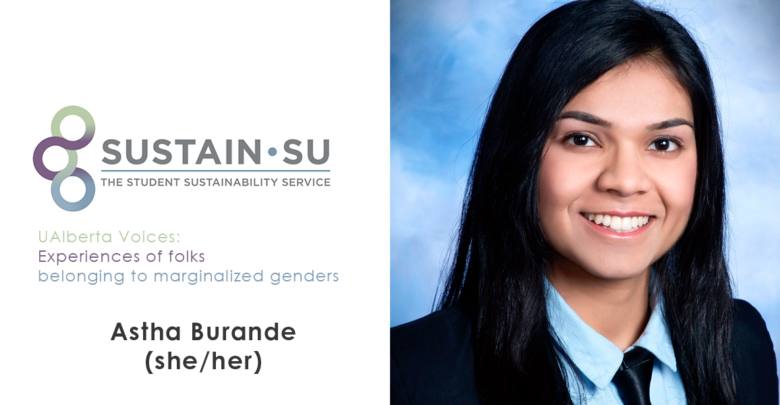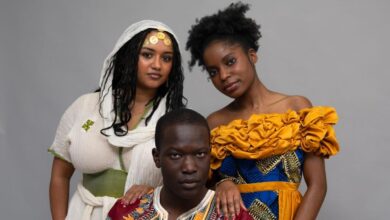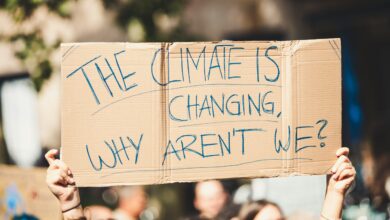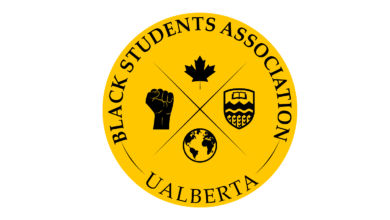The impact of socioeconomic barriers in post-secondary education: a Q&A with Astha Burande
 Pia Co
Pia CoThis guest column is written through a partnership with Sustain SU, a service provided by the University of Alberta Students’ Union. The interviews and articles have been conducted and written by Sustain SU ambassadors, and edited by The Gateway for publication.
This article is the seventh of a multi-part series named “UAlberta Voices: Experiences of Folks Belonging to Marginalized Genders“ that aims to highlight the experiences of students and community members belonging to marginalized genders in leadership positions within the University of Alberta campus and Edmonton community.
This is a question and answer (Q&A) session with Astha Burande (she/her), on the topic of financial sustainability and the impact of socioeconomic barriers in post-secondary education.
This interview has been edited for brevity and clarity.
Q: Please tell us a little bit about yourself.
Astha Burande [she/her]: My name is Astha Burande, my pronouns are she and her. I’m a fourth year undergraduate student attending the University of Alberta. I am double-majoring in psychology and biology. I’m involved quite a bit in the community. I’m actually originally from Calgary, so I moved to Edmonton for university, and I lived in residence. I’ve been involved in the facilitation team at the International House of Community Council Executive for about two years now, and I hold the position of program coordinator with the facilitation team. I’m also a part of the student advisory committee for two things. One of them is the Office of the Registrar of the U of A, and the other one is the Student Library Advisory Committee. Finally, I am involved in a student group on campus called STEM (science, technology, engineering, and mathematics) Teachers for equality.
Q: Do you hold intersecting identities that have placed a barrier on your ability to be recognized and heard as a leader within the campus community?
Burande: Yes, I do. Firstly, I am a woman. Second, I’m a woman of colour, so I experience racism. Thirdly, I belong to a low socio-economic group which definitely places a lot of financial burdens on myself. I face a lot because of those identities clashing.
Q: Based on your leadership experiences, and/or life experiences, what is your perception of the prevalence of gender inequality in Edmonton or Alberta?
Burande: It’s very, very present. People might not come to your face and say sexist things, but it’s still going on. There are continued barriers. For example, there was a time in high school when I took an electronics class, and I was one of the only two girls in the class of 30 boys. That was really uncomfortable because it was not something that was encouraged with women. The same thing with physical education classes later on, the ratio from like girls to boys was really off. Those are visual representations of inequality, but sometimes it’s not as evident either.
There are a lot of underlying assumptions that people make about me simply because of my gender. I face assumptions surrounding women in science — that we shouldn’t be the engineers or the doctors, but should be the nurses. I have lived in five countries, and I’ve experienced the presence of sexism in all of them — some more than others. Some cultural norms dictate that women are supposed to start a family, they’re supposed to do the housework, to clean things. These are things that everybody should know: everybody should know how to cook and clean, everybody should know how to care for themselves, everybody should know how to make a nice meal. It’s not the women’s responsibility. Another issue that is prevalent is reproductive rights, when other people, like men, try to make decisions for women. No government or anybody else who isn’t a woman should be representing them and their voices, especially when it comes to something like reproductive rights.
Q: That being said, where do you feel the responsibility for eliminating gender inequality should lie?
Burande: The group I lead on campus is called the STEM Teachers For Equality. It is for educating teachers about the problems that exist with diversity within the STEM fields, so we basically target teachers as a population, who have a role in educating students to make choices, to help people of color, or people who are low in representation, to get into STEM fields. I think the main goal is to educate people. Starting from the bottom up, our education as children should not be reinforcing stereotypes. Refining education curriculum and addressing racism that has and continues to take place is needed. The second step is creating more awareness about these kinds of issues because a lot of people might not be aware. People might not know what it’s like to step into someone else’s shoes. Even having more representation in the media can be a step toward this and changing the narratives surrounding inequality. Recently, we’ve seen some progress in this regard, with more representation in Disney films, or the Black Lives Matter movement, for example. But still, there are continued barriers with representation.
Q: What do you believe are the contributing causes of gender inequality?
Burande: I think that perceptions of people and stereotypes play a big role in gender inequality. I feel like there’s a lot of systemic discrimination our institutions.
Q: What are the chief obstacles to achieving greater gender equality within the communities you are part of?
Burande: I think it’s important to address that there are inherent stereotypes and beliefs that may go unnoticed in people. It’s important not to hold it against them. We need to give them the tools needed to understand a different perspective that perhaps they haven’t considered or experienced. I feel like it’s really important to go about things more systematically, but I do feel like that’s an obstacle that we face as a society. People are not able to have those kinds of open conversations. Maybe they’re scared or just not able to mingle with people from different backgrounds. I place a lot of importance on education for moving forward and making progress.
Q: You mentioned that as a BIPOC woman, having a low socioeconomic status places a barrier on how you are perceived by your community. Can you expand on this, or suggest why you think that is?
Burande: With financial hardship, people do not always take me seriously because there’s an inherent status that people have. As a woman of color and belonging to a low socio-economic group, I feel like I’ve faced a significant number of hurdles that some of my other friends haven’t. For instance, with going to university, I had to base my decision on the financial choice. Rather than “what university do I want to go to,” the question was “what university can I afford.” I did not have the choice to rely on just loans, or have parents to fund me. I worked to make ends meet, with budgeting month to month. It’s an extra stressor.
While studying, I was also working and managing financial needs which is really difficult to do at the same time. With COVID-19, in some ways it’s been a relief because I’ve moved back home which allows me to save some rent, but at the same time it’s caused me to lose my jobs, which has been very stressful. There isn’t much financial help provided now like there was at the beginning of the pandemic, and I do wish there was more. The campus food bank is definitely a great resource, as well as the organizations on campus that say all you have to do is ask. Sometimes, though, it gets very difficult to just ask for that help. There are resources out there, but it’s hard to ask for help when you have to do everything by yourself.
Navigating through affording university, affording rent, affording your meals every day, you either have to rely on scholarships that you may not receive, or get work which can be unpredictable due to COVID. The other thing that I can empathize with is with COVID-19, a lot of people have been through mental health issues and family members getting sick. My father was actually diagnosed with cancer and at the start of COVID-19, which has been an additional challenge. I am a daughter, a caregiver, the earning member of my family, I’m a student, and I’m working so I have all these roles that have to play together, whereas others may be simply just contending with studying. It may be easier for some people than others. With my identity as well, I do experience a lot of barriers, like racism that my family and I face – so there is stress from that. Generally, there are a lot more stressors, I feel, as a woman of color and belonging to a low socio-economic group. I am glad there’s support offered out there. Even though sometimes it’s hard to ask for help, I would really encourage people to ask for help when you need it.
Q: Do you think financial barriers, having a low socioeconomic status, and/or being a BIPOC individual has an impact on the prevalence of gender inequality in Edmonton?
Burande: Yes, it definitely does have an increased effect on gender equality. Life is hard as is with financial burdens but adding the factor of being a woman of colour, things get compounded. People don’t take you seriously when they should, people don’t recognize that your voice is valid. Even in institutional settins, I’ve faced discrimination directly from professors. In those situations, I’m just trying to finish the course and move on so I can take the next course, trying to please the professor and not offend them, and do as well as possible in the class. I can’t simply just drop a course and take it next semester because I would lose some of my deposit. Those are decisions that I need to make that others may not, and something that I need to definitely think about whenever I face discrimination from people in positions of authority. I have to make some difficult choices, especially when it comes to financial decisions.
Q: Do you have any recommendations in regards to resources available on campus or within the Edmonton community to help individuals who struggle with financial barriers?
Burande: For scholarships, I recommend seeking out faculty advisors to help you figure out what’s out there for you. Another one is the Academic Success Centre. I even check BearTracks frequently to see if there are any new scholarships I can apply for. Another thing I did a lot was participate in research. There are pamphlets all around campus that advertise seeking research participants and some have rewards for participating. You’re both contributing to the scientific community and gaining a little bit of extra money from it!
Q: Based on your life experiences, do you have any tips for individuals who face financial barriers because of post-secondary education, student debt, or loans?
Burande: I would say to get involved! Once you get involved in the community, it keeps you busy and thinking on your feet. It’s something that really helped me get through university.
Another tip I would suggest is seeking role models. I have a few women that I look up to and keep in constant touch with. If I ever need their help, I call them to chat or get some guidance on my career. It’s really good to have that person who can guide you, like a career coach or a life coach. And similarly, it’s great if you can be a role model for someone else, even a younger sibling. I have a little sister and I do my best to guide her through things — I can relate to her better than anyone else in the world! It really helps me feel like I’m making an impact in the world, even if it may be a small impact. Mentorship, both in terms of having a mentor and being a mentor is something that I’ve found really useful as a tool to move forward not only with career goals but just keeping me going with life in general.
Sustain SU Ambassador’s Note:
Addressing the United Nations’ Sustainable Development Goals #4, #5 & #11: Quality education, gender equality and reduced inequalities
In accordance with reducing inequalities as outlined through the sustainable development goals, it is vital that our community takes an active role in providing opportunities to those who face financial hardship, and barriers to their post-secondary education. Financial instability undoubtedly has a direct negative impact on student’s mental health and well-being. Individuals who are marginalized in society, like those from the BIPOC community face additional oppression, making it harder for them to seek assistance, mentorship, or enter professional careers that they desire. Thus, increased access to education regardless of an individual’s socioeconomic background or status in society is needed to sustain equality.
This guest column is written by Sustain SU volunteers through a partnership with Sustain SU, a service provided by the University of Alberta Students’ Union. To learn more about Sustain SU or to get involved, visit their website.




